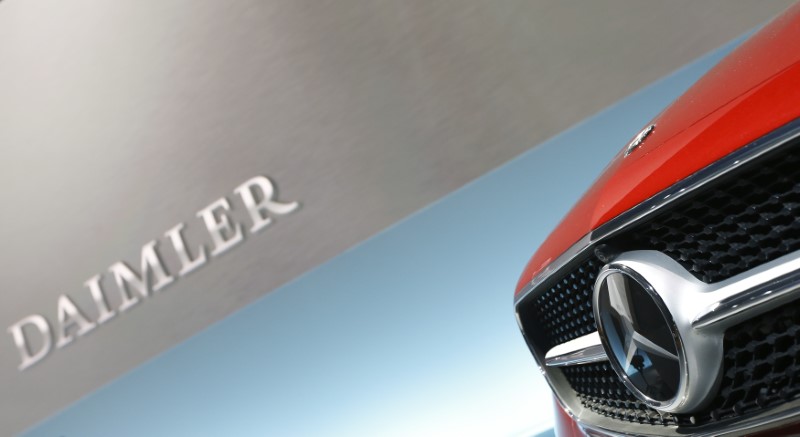FRANKFURT (Reuters) - The European Investment Bank may ask Daimler (DE:DAIGn) to pay back loans extended for research and development in light of a report linking the Mercedes maker to diesel emission-test cheating, Welt am Sonntag reported.
The company has received a total of 3.8 billion euros ($4.7 billion) in loans from the EIB since 2000, with around 2 billion still outstanding, the newspaper said.
"The EIB is worried about the accusations against Daimler and their potential consequences for the bank's credit financing of the company," an EIB spokesman said in an article published on Sunday.
The news comes after Bild am Sonntag reported last week U.S. investigators had found that Daimler's cars were equipped with software that may have helped them pass emissions tests.
Daimler said it was cooperating with the U.S. authorities and had agreed upon strict confidentiality with the Department of Justice. It has not been charged with anything by the U.S. authorities.
The EIB said it would need to wait for the outcome of official investigations before deciding whether Daimler should repay the loans, the newspaper said.
A Daimler spokesman told Reuters it had received a request for information from the EIB and was cooperating with the bank.
Volkswagen (DE:VOWG_p) was found in 2015 to have illegally installed software "defeat devices" to dupe U.S. regulatory tests, sparking the biggest business crisis in its history. It settled the principal U.S. cases for $25 billion the following year, although a host of others are still pending.
The Daimler spokesman declined to comment on the amount of outstanding loans from the EIB, while the bank did not immediately respond to a request for comment.
Since 2009, the EIB has granted more than 8 billion euros ($10 billion) in preferential loans to back development of vehicles with lower carbon dioxide (CO2) emissions by carmakers, including VW.

In France, the bank has asked investigators to find out whether 800 million euros of EU-backed loans to French carmaker Renault (PA:RENA) could have been used to develop test-cheating diesel engines, according to documents seen by Reuters.